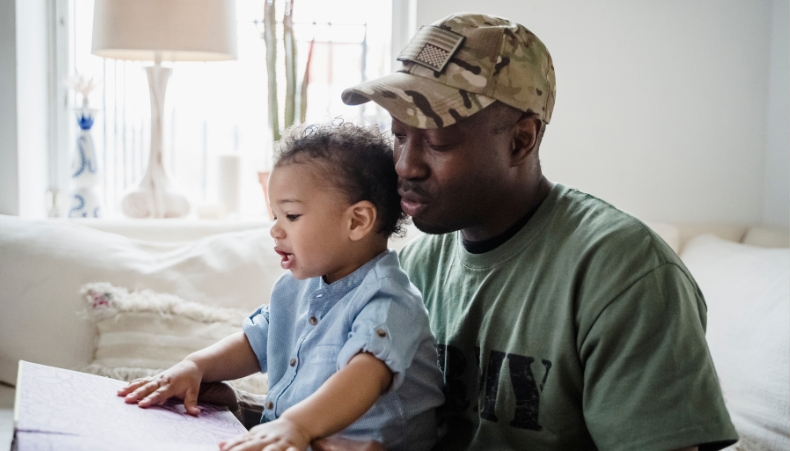
Military service members face unique challenges when it comes to child custody matters in Georgia. The complexities of military life, including deployments, relocations, and demanding schedules, can significantly impact custody arrangements. This guide provides valuable insights into military child custody cases in Georgia, addressing the legal framework, challenges, and solutions available to service members and their families.
Georgia law recognizes the unique circumstances faced by military parents and has implemented specific provisions to protect their rights in child custody cases. The state's approach is designed to balance the best interests of the child with the service member's military obligations.
Two primary pieces of legislation govern military child custody cases in Georgia:
Deployment is perhaps the most significant factor affecting military child custody cases. Georgia law has specific provisions to address custody issues arising from deployment:
When a military parent with primary custody is deployed, the court may implement temporary custody arrangements. These arrangements are designed to ensure the child's well-being during the parent's absence while preserving the deployed parent's custody rights.
Final custody orders cannot be granted by courts in Georgia while a parent is deployed. This protection extends for 90 days after the end of the deployment, allowing the returning parent time to prepare their case.
The Georgia Military Parents Rights Act expedites the court's processing of plans for temporary custody modifications. This allows for the establishment of a child care blueprint prior to a parent's deployment.
Despite the special considerations for military parents, when determining custody, Georgia courts continue to use the "best interests of the child" criteria. Among the factors that judges take into account are:
Military parents often encounter unique challenges in custody cases:
Military service often requires frequent moves, which can complicate custody arrangements. Courts must balance the need for stability in the child's life with the realities of military service.
The demanding and often unpredictable nature of military service can make it difficult for service members to adhere to traditional custody schedules.
When stationed far from their children, military parents may struggle to maintain strong relationships and exercise their parenting time effectively.
To navigate these challenges, military parents can employ several strategies:
A well-crafted parenting plan that accounts for potential deployments, relocations, and other military-specific issues can provide stability and clarity for all parties involved.
Video calls, messaging apps, and other technologies can help maintain strong parent-child relationships during separations.
Military parents should develop a Family Care Plan that outlines arrangements for child care during deployments or other periods of unavailability.
To address common concerns, here are answers to frequently asked questions about military child custody in Georgia:
Question: Can a military parent lose custody due to deployment?
Answer: No, a military parent will not lose child custody simply due to their deployment. Georgia law specifically protects against this. A parent's absence due to military duty cannot be the sole factor in modifying custody arrangements. The court will consider the totality of various factors, always aiming for the child’s best interests.
Question: How does Georgia handle custody during short-term military assignments?
Answer: For temporary duty assignments, the existing custody arrangement typically remains in place, with provisions made for maintaining contact between the deployed parent and child.
Question: Can a non-military parent move the child out of state during deployment?
Answer: Generally, no. Any significant changes to the child's residence typically require court approval, especially during a parent's deployment.
Question: How are visitation schedules handled for military parents?
Answer: Courts often create flexible visitation schedules that accommodate the military parent's unpredictable schedule, potentially including provisions for make-up time after deployments.
Question: What happens if a custody order conflicts with military duties?
Answer: Military parents can petition the court for a modification based on their service obligations. Courts generally try to accommodate military duties while ensuring the child's best interests are met.
For military parents facing custody issues in Georgia, seeking experienced legal counsel is crucial. Attorney Sharon Jackson stands ready to assist service members in protecting their parental rights and maintaining strong relationships with their children, regardless of the challenges posed by military service.
Based in Lawrenceville, GA, Attorney Sharon Jackson has built an excellent track record in family law matters, including military child custody cases. With over 20 years’ experience in this complex area of law, she provides comprehensive legal support to military parents navigating custody issues, including:
For personalized advice and representation in military child custody matters, contact Attorney Sharon Jackson at (678) 909-4100. With the right support and guidance, military parents can achieve custody arrangements that serve the best interests of their children while honoring their commitment to service.
Attorney Sharon Jackson LLC
175 Langley Drive, Suite A1
Lawrenceville, GA 30046
Phone: (678) 909-4100